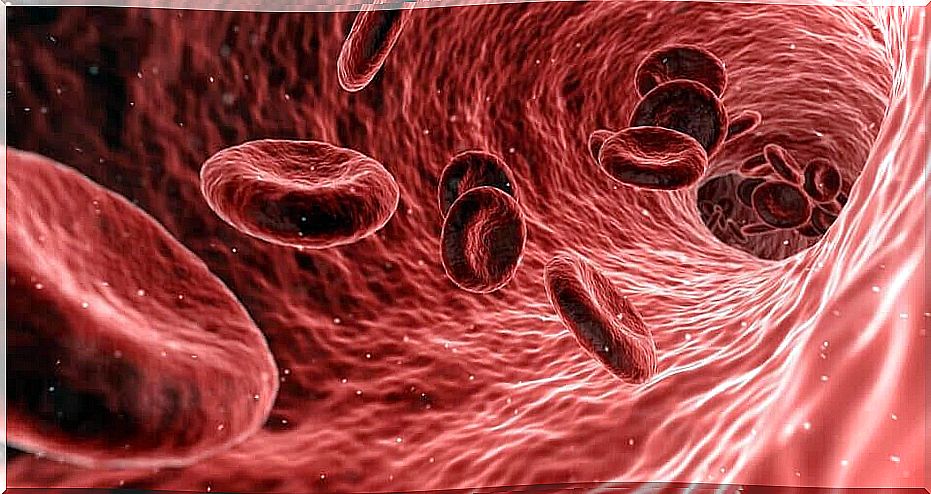Phospholipid Antibody Syndrome And Spontaneous Abortions

Are you trying to get pregnant and wish for a trouble-free pregnancy and childbirth? If you have previously lost one or more fetuses due to a miscarriage, it is possible that your ailment is phospholipid antibody syndrome.
This syndrome has been the subject of many studies and treatments are currently being developed to improve the quality of life of people with the syndrome.
What is phospholipid antibody syndrome?
Phospholipid antibody syndrome is a rare disease in which the composition of the blood is thicker and more sticky than normal.
Because of this composition, the blood tends to clog the blood vessels of the diseased. These blood clots are also called thromboses.
They can form in the bloodstream anywhere, including the arteries. Arterial blood clots increase the risk of stroke.
In pregnant women, phospholipid antibody syndrome may cause spontaneous abortions in the second trimester of pregnancy because placental resistance is not high enough to combat the effects of this disease.

Causes of phospholipid antibody syndrome
This syndrome is caused by the formation of abnormal proteins in the blood; blood phospholipid antibodies.
These antibodies stimulate the immune system, which in turn helps the blood to clot.
Types of phospholipid antibody syndrome
- Type 1. A disease is classified as a type 1 disease when it is not associated with other diseases such as rheumatoid arthritis.
- Type 2. Phospholipid antibody syndrome type 2 is caused by an autoimmune disease that causes damage to several parts of the body , including the circulatory system.
Symptoms of phospholipid antibody syndrome
This disease usually does not include symptoms that would warn of the disease in advance.
But it can still cause certain changes that can be confused with other diseases. The most common symptoms include:
- Severe headache or migraine.
- Joint pain.
- Circulatory disorders.
- Cold skin.
- In acute cases, epilepsy and bluish skin on the knees and elbows may occur.
Women with this disease may experience spontaneous abortions during the first 10 weeks of pregnancy. In some cases, pregnancy can reach up to 34 weeks and then end in preterm birth.
Diagnosis of phospholipid antibody syndrome
Only a doctor can diagnose this disease reliably. The doctor will assess the patient’s personal history and family background, perform physical examinations, and order certain blood tests to rule out or diagnose the disease.
It is also important for the patient to tell the examining doctor about any blood clots or other symptoms they have previously had.
Keep in mind that phospholipid antibody syndrome can develop in people of all ages. However, proper medication can significantly improve a patient’s quality of life.
Common health problems caused by phospholipid antibody syndrome
This disease can be treated with aspirin, heparin or warfarin. All these prevent the blood from clotting drugs to prevent formation of blood clots when they are eaten in certain dosage levels.
If phospholipid antibody syndrome is not diagnosed early enough, it can cause additional diseases such as strokes, blindness, and heart attacks.
In addition, the formation of blood clots can also bring interruptions to the bloodstream in general throughout the body.
Another ailment associated with this disease is pulmonary embolism, which can cause difficulty breathing, chest pain, and cough.

Phospholipid antibody syndrome and pregnancy
Despite all the ailments that phospholipid antibody syndrome can cause, a successful pregnancy is a possible thing. For planned pregnancies, blood thinning treatments are first recommended for the mother before attempting to conceive.
Without proper treatment, the patient may suffer from placental thrombosis, which makes it difficult for nutrients to pass to the fetus. This in turn can lead to miscarriages and pregnancy poisoning.
Most doctors recommend aspirin for patients who are already pregnant at the onset of the disease. Aspirin treatment helps to thin the blood and can guarantee a successful pregnancy for up to 80% of patients.
Eventually, people with phospholipid antibody syndrome can experience a trouble-free pregnancy, and it is possible to prevent spontaneous abortions when the disease is only sought and treated in a timely manner.









